15 Must-Have Items to Engage Job Seekers on Your Firm’s Website

In today’s competitive landscape, recruiting top talent remains a priority for most professional services firms.
Undoubtedly one of a firm’s most vital assets for recruitment and employer branding is their website.
Job seekers consider a company’s career site the top source of information about a company’s employer brand. In fact, 89% of job seekers visit a firm’s website to research the company before applying for a job. Unfortunately, many websites lack some essential items that job seekers are looking for when they visit.
When it comes to talent acquisition, it’s crucial to provide job seekers on your website what they want and need, as well as what they have come to expect. Here is a list of 15 must-have items to include on your firm’s website to engage job seekers.
1
Easy-to-find job listings
A study by CareerArc found that 91% of job seekers prefer to apply for a job directly on a company’s career site. If you look closely at your firm’s website analytics, you’ll likely notice that the Job Openings page receives a high amount of traffic. That’s because many job seekers are simply looking to see if you have any positions available that they might be interested in. With that in mind, it’s important to make your job openings easy to find in both the main navigation and other career-focused pages.
2
Fast facts about your firm
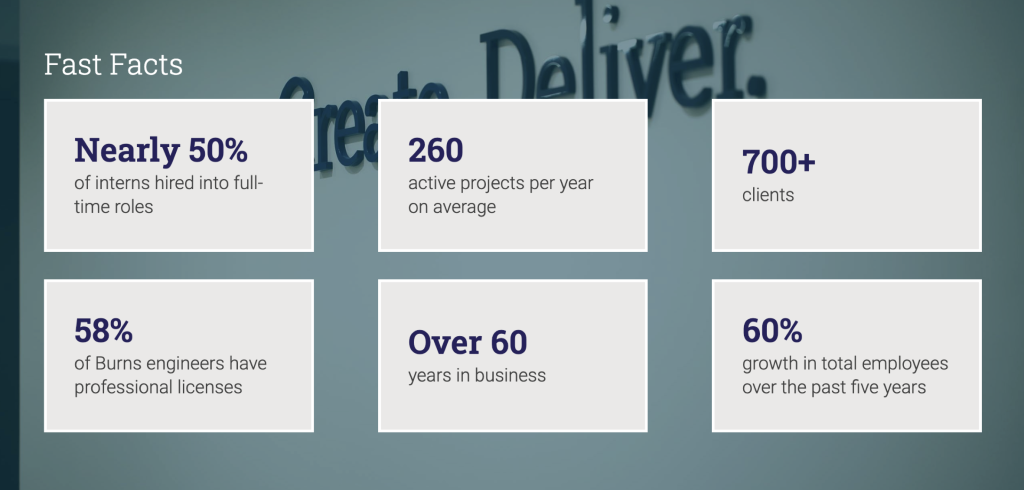
On an initial visit, a job seeker is trying to understand quickly if your firm warrants further consideration. Especially in cases where there isn’t a high level of familiarity between the applicant and your brand, basic questions around size, client base, growth, etc. need to be answered right away. To introduce a job seeker to your firm, a section focused on “fast facts” is helpful for providing the user with this pertinent information in a succinct fashion. When deciding what information to include, consider what facts will be most compelling to make a case for further exploration of your firm as a potential employer.
3
Details on benefits and perks
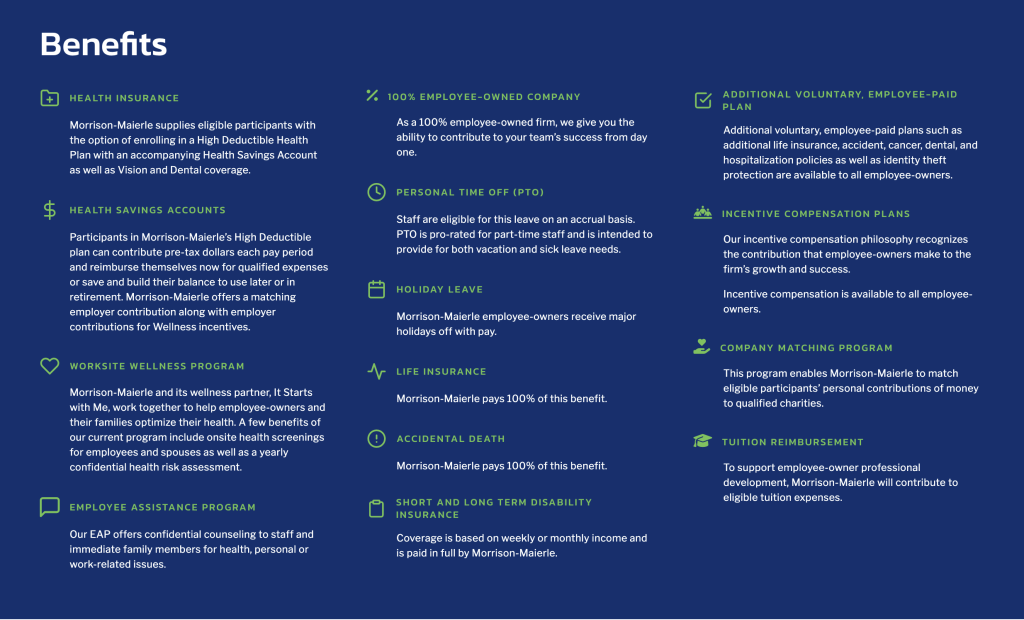
Historically, firms were content to share a basic list of company benefits on their careers page. But today’s job seekers expect more than they have in the past. Because benefits and perks are important criteria for job seekers, be sure to emphasize what you have to offer. Your benefits list should be comprehensive, providing as many specifics as possible, as well as details about each benefit offered. Don’t skimp on details because candidates want them! In addition to covering benefits, you should also tout other perks that you offer employees as well, such as hybrid working schedules or regular team lunches and activities.
4
What it’s like to work there
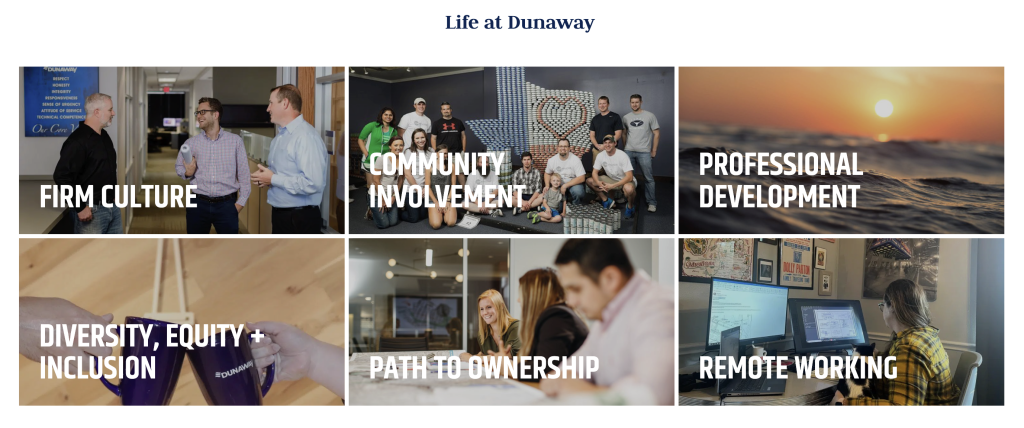
One of the biggest challenges that job candidates face when evaluating a job opportunity and/or employer is not knowing what it’s like to work for the firm. So it’s essential to feature content on your careers page that highlights a variety of topics that speak to this question. Think through the lens of the user and seek to answer as many of the curiosities that they likely have about life at your firm.
5
Opportunities for training and career growth
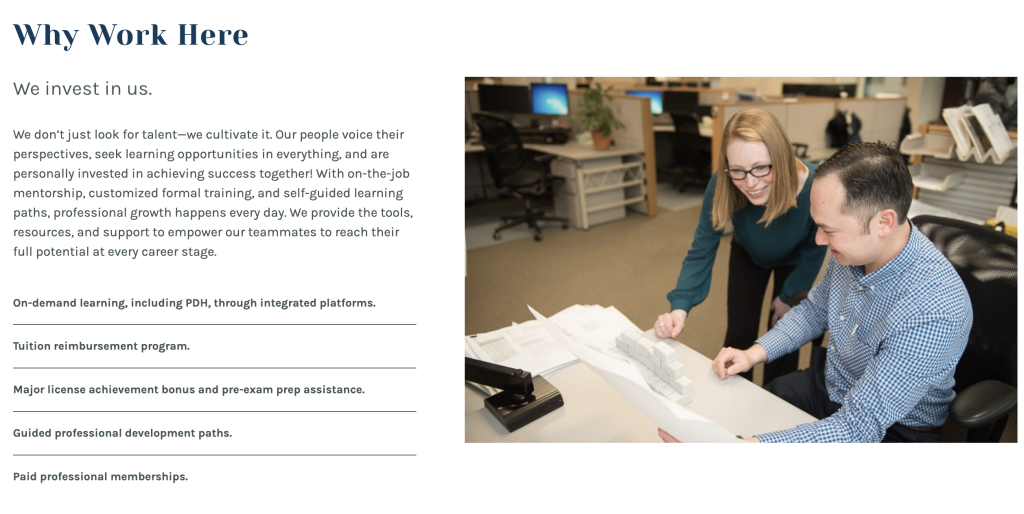
Most job seekers — especially those in the front half of their career — are looking for an employer who will invest in their growth. Nearly all firms promote training and growth, but it’s no longer enough to say it — firms need to get much more specific about what, precisely, training and career growth entails. As is the trend in this article, details and specifics about your approach to career growth are preferred here and will be far more compelling to candidates than generalities.
6
A window into your firm’s culture

Culture matters to job candidates. Research found that 77% of job seekers consider a company’s culture before applying for a job, and 25% of candidates said that a better company culture is among their top reasons for changing jobs. Your website should give job seekers a sense of what your culture is all about. And not just through words, but primarily through photos and videos that highlight the professional and social happenings of your firm.
7
Employee testimonials
A study from Glassdoor found that job candidates trust a company’s employees three times more than the company itself to provide credible information on what it’s like to work there. So while a career video with a message from your CEO may be important, it’s even more important for job seekers to hear directly from employees. Using photos and quotes — or even better, video — you should provide a platform for a diverse group of employees from all levels to share their experiences working at your firm.
8
The firm’s commitment to important issues
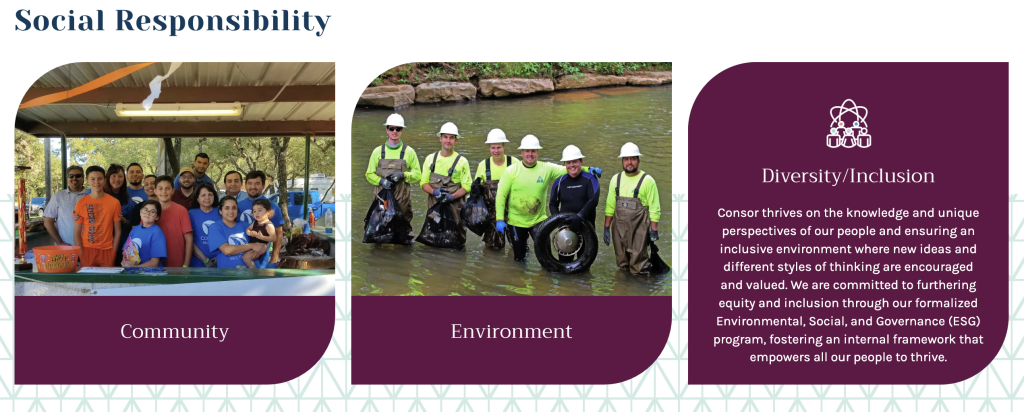
There are a number of topics that are increasingly important to job candidates, so it’s essential to address your firm’s commitment to these social issues. Job seekers want to work for firms that align with their beliefs on matters that are important to them. Things such as diversity, sustainability, and environmental, social, and corporate governance (ESG) need to be highlighted on your website with as many specifics as possible.
9
Your firm’s mission, vision, and core values

Your firm’s guiding principles matter to today’s job candidates. A study from Glassdoor found that 89% of candidates say they believe it’s important for organizations to have a clear mission and purpose, and 79% consider a company’s mission and purpose before applying. It’s important to feature your guiding principles prominently on your website, and ideally either directly on, or linked from, the careers section.
10
Leadership bios
While most firms have some form of leadership bios on their website, surprisingly, the question of whether to include them is a more common occurrence than you might think. As we have evaluated the analytics of hundreds of websites, the leadership/people section is typically in the top 3-5 most visited sections of a website. And it’s not just important for potential clients or teaming partners, it’s also important for job seekers. They want to understand who leads the company, who they will be working for, what the management structure is, etc. Ideally, leadership bios should have a personable element that goes beyond the professional profile, as well as ways to connect with them directly.
11
Clients, projects, and expertise
Understanding the clients you serve and the types of projects that they’ll have an opportunity to work on is important for a job candidate. They want to discover where the firm has subject matter expertise and if there is alignment with their background and skillset. While much of this information will be covered in sections outside of Careers, you may consider a section that calls this out in a succinct fashion, using calls to action to push users into other areas of the website for further reading.
12
Company history
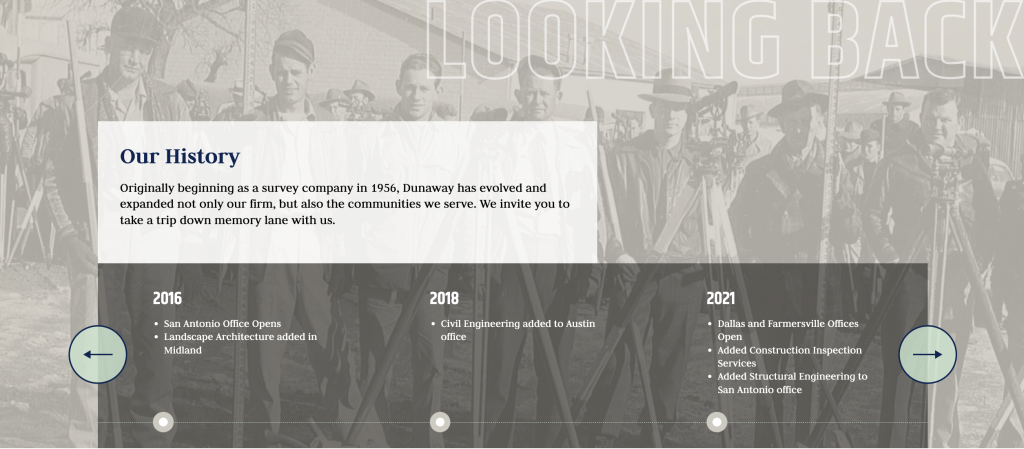
Another important component of job candidate research is exploring the history of the firm. Whether your firm is a startup or over a hundred years old, there is a story to be told about your firm — and that story matters to a job seeker. We always recommend a reverse chronological order starting with where you are today and going back from there. Photos, video, statistics, marquee projects, acquisitions, and highlights of major company milestones are important to detail.
13
Latest firm news, events, and press releases
Your news and events section should be regularly updated with various news updates, company events, and press releases of your firm. Job seekers are looking to find out about the latest happenings of the firm and learn about new hires, projects, awards, announcements, and events. Most firms have a news section on their website, but many don’t keep it as up-to-date as they should. Be sure that this section gets regular attention to send the right message to job seekers.
14
Helpful FAQs
While all the content on your website should focus on addressing key questions that job seekers want answered, some questions are more specific and better addressed through a Frequently Asked Questions (FAQs) section on your careers page. Think about the most common questions that job candidates reach out to ask before applying, after applying, before an interview, during an interview, and after an interview. The questions can be answered using a simple format, and your responses will provide a lot of convenience and value to job seekers. And an FAQs section won’t just save job candidates the effort of having to contact HR but will also save your HR team from having to answer the same questions over and over.
15
Address why someone should work for your firm
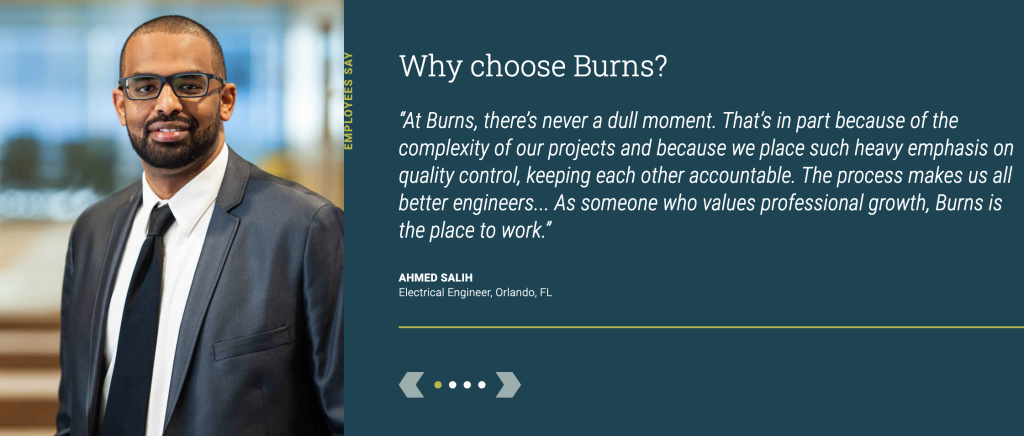
Ultimately, this is the primary question that every job candidate wants to have answered. And there are a variety of ways to accomplish this. You may choose to use this question as a lens through which to create all the content featured on your careers site. Or, you can create a section of content, or an entire page, dedicated to answering this question and making the case for your firm as the employer of choice. Another option is to use this question as the departure point for employee testimonials. Regardless of your approach, the important thing is to ensure that all job seekers leave your website with an answer to this very important question.
Give job seekers everything they want (and expect)
While not an exhaustive list, these 15 items represent the core of what today’s job seekers are looking to find on your firm’s website. As you continue to refine and enhance your careers content, always remember to ask your HR and marketing team the right question. “What do we want on our website?” is the wrong question to ask. “What do job seekers want to find on our website?” will be much more helpful for creating content that engages job candidates.
"*" indicates required fields
By signing up you are agreeing to our Privacy Policy.